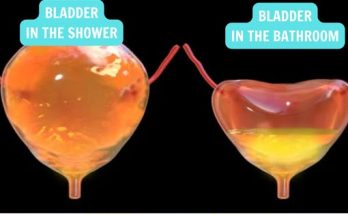Health advice is everywhere — from social media and friends to advertisements and even well-meaning family members. But not everything you hear is true. In fact, many common health beliefs are actually myths that can mislead you and even harm your wellbeing if you take them at face value.
In this article, we’ll debunk some of the most widespread health myths and reveal what scientific research really says. Understanding the truth will help you make smarter choices for your health.
Myth #1: You Should Drink 8 Glasses of Water a Day
You’ve probably heard the advice to drink at least 8 glasses of water daily, but this “rule” is actually a myth. While staying hydrated is important, the amount of water your body needs varies depending on your age, activity level, climate, and diet.
What science says: Your body tells you when it needs water through thirst. Many experts recommend drinking when thirsty and paying attention to urine color (light yellow means good hydration). Also, fluids from foods and other beverages count towards your daily intake.
Myth #2: Eating Fat Makes You Fat
For years, fat has gotten a bad reputation as the enemy of weight loss. However, not all fats are bad, and eating moderate amounts of healthy fats is essential for your body.
What science says: Healthy fats from sources like avocados, nuts, and olive oil can help with satiety, brain health, and nutrient absorption. Overeating any nutrient, including fat, can cause weight gain, but fats themselves are not inherently “fattening.”
Myth #3: You Need to Detox Your Body Regularly
You may see many products or diets promising to “detox” your body and eliminate toxins. However, your body already has an efficient natural detox system.
What science says: Your liver, kidneys, lungs, and digestive system continuously filter and remove harmful substances. No special diet or product is scientifically proven to enhance this process. Instead, focus on a balanced diet and avoiding excessive toxins like alcohol or smoking.
Myth #4: Cracking Your Knuckles Causes Arthritis
Many people avoid cracking their knuckles, fearing it will lead to arthritis later in life. This is a common misconception.
What science says: Studies show no link between knuckle cracking and arthritis. The popping sound comes from gas bubbles in the joint fluid and is generally harmless. However, habitual or forceful cracking that causes pain should be avoided.
Myth #5: You Should Avoid Carbs to Lose Weight
Carbohydrates often get blamed in popular diets, but carbs are a vital source of energy, especially for your brain and muscles.
What science says: The key is choosing the right types of carbs — whole grains, fruits, and vegetables — over refined sugars and processed foods. Balanced carbohydrate intake supports weight management and overall health.
Myth #6: You Must Stretch Before Exercise to Prevent Injury
Stretching before working out is a common ritual, but static stretching (holding a stretch) before exercise may not prevent injuries and can sometimes reduce muscle performance.
What science says: Dynamic warm-ups—such as light jogging, jumping jacks, or bodyweight movements—are more effective in preparing muscles and joints for exercise. Save static stretching for after workouts or separate flexibility sessions.
Myth #7: You Only Need Sunscreen on Sunny Days
Some people skip sunscreen on cloudy or cooler days, thinking UV rays aren’t harmful then.
What science says: Up to 80% of UV rays can penetrate clouds, so it’s important to wear sunscreen daily, regardless of weather. Regular sunscreen use helps prevent skin damage and lowers skin cancer risk.
Why Debunking Health Myths Matters
Believing in false health information can lead to poor decisions that affect your wellbeing. By knowing the truth behind common myths, you empower yourself to make evidence-based choices and avoid wasting time or money on ineffective or harmful practices.
How to Find Reliable Health Information
-
Look for information from trusted sources such as government health agencies, hospitals, or scientific journals.
-
Be skeptical of miracle cures or quick fixes.
-
Consult healthcare professionals when in doubt.
Final Thoughts
Health myths are everywhere, but science is a powerful tool to separate fact from fiction. Always question what you hear, seek credible information, and make decisions based on evidence. Your health deserves nothing less.
If you found this article helpful, share it with your friends and family to spread the truth about common health myths!

